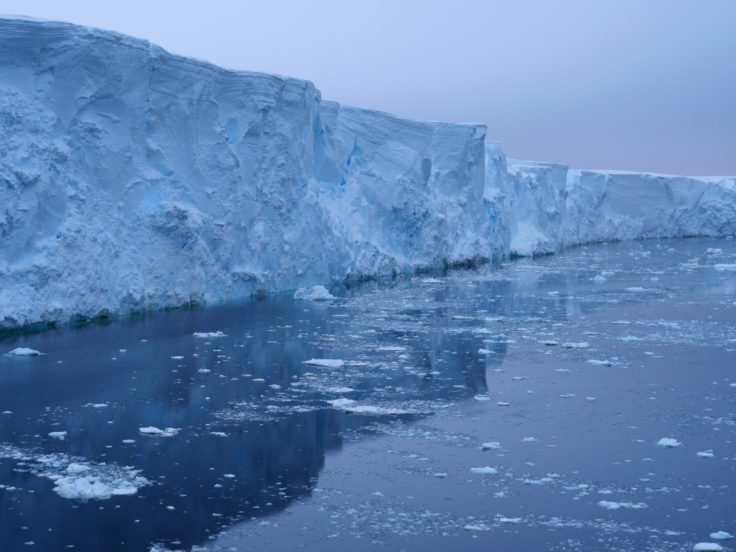New funding to predict future sea-level rise in Antarctica
Researchers at British Antarctic Survey (BAS) will develop new and ambitious ideas to tackle critical global environmental challenges, such as global sea-level rise from Antarctica, thanks to new funding.
The investment from the Natural Environment Research Council (NERC) has been awarded to BAS for the new science programme SURface FluxEs In AnTarctica (SURFEIT), to the value of £2.3m.

SURFEIT, led by BAS and working with international partners, will improve predictions of future global sea level rise that is driven by loss of ice from Antarctica. The specific focus is on interactions between the atmosphere and ice; the SURFEIT team will:
- improve how polar clouds are represented in climate models;
- use pre-existing, and new observations alongside climate model output to help improve the understanding of changes in snowfall over Antarctica;
- ensure that small-scale and extreme-event weather changes in Antarctica can be accurately predicted;
- improve how earth and ice system model components link together, so that better predictions can be made of when Antarctic ice may fracture, and so raise global sea level.
Dr Iain Williams, NERC Director of Strategic Partnerships, said:
“This exciting investment in internationally collaborative research programmes will significantly advance our understanding of the drivers and responses to global environmental change. Many of the environmental science challenges we face are global in nature and require an international and transboundary response. By bringing together expertise in earth, ecological, ocean, polar, and atmospheric sciences, from NERC’s research centres with colleagues from across the globe, we can develop understanding that will help us mitigate and adapt to the changes caused by global warming.”
The NERC National Capability International programme will focus on research excellence and global public good.
Read more about the ambitions of the SURFEIT programme